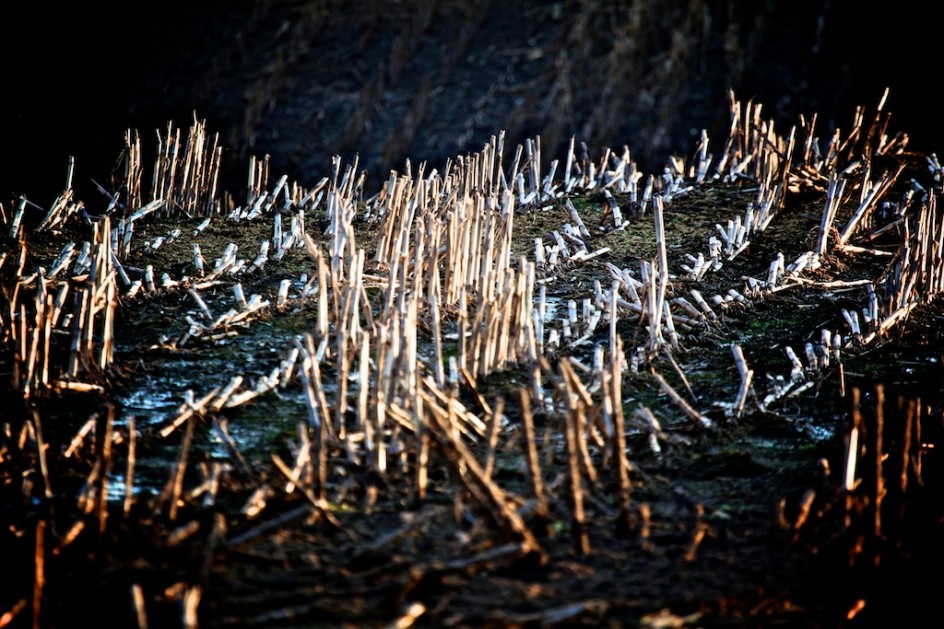
Last light on a cornstalk field, Salem, N.Y.
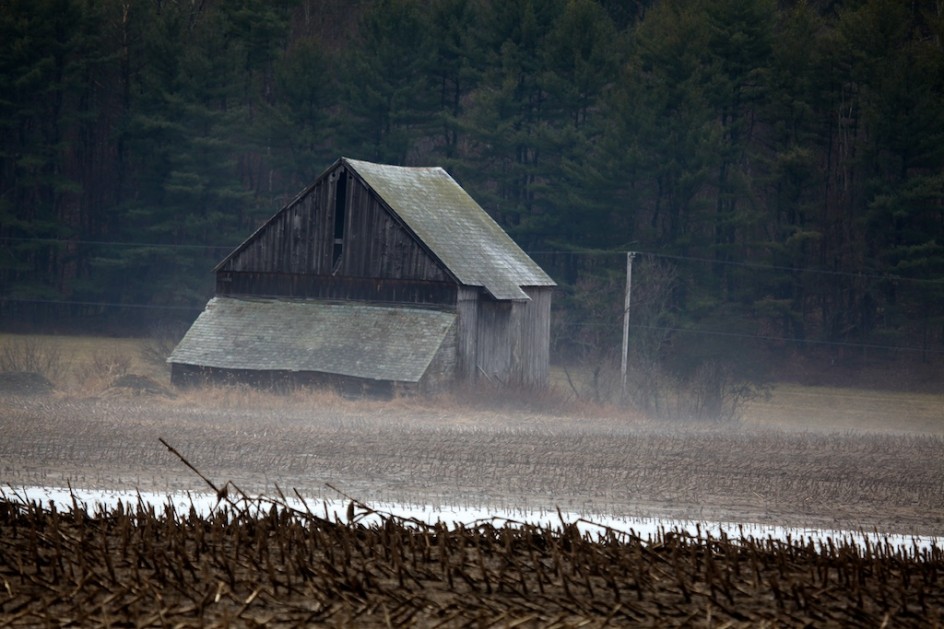
So this week another photo show for Maria, for me, at Gallery 99 in Glens Falls. I’ve never quite gotten comfortable with selling the photos, I like putting them up on the blog. I am passionate about taking them, though. They have changed my life, brought out something powerful in me. This year, I hope to get one of the new and smaller Canon cameras, a good compliment to my 5D, which I hope to never give up. The G14, I think, out in March if I can.
I am experimenting more with black and white, and hope to do more profiles. Time to stretch myself a bit. I cannot quite grasp how photography has changed the way I view the world, what it has opened up in me. Artists, says Joseph Campbell, must capture the light for everyone. I’m on it.
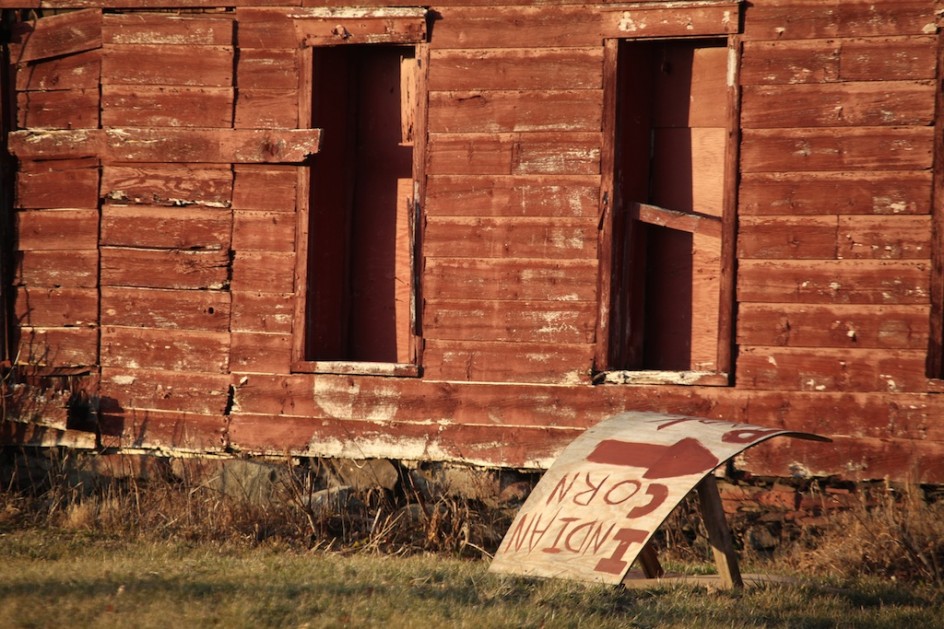
I’ve been trying for several years to find a home for my writing workshop, and I may have finally found one at Hubbard Hall, the wonderful old opera house and arts center in Cambridge, N.Y. Met with Hubbard Hall people today and it looks like we are going forward with plans to gather some writers and story-tellers and hopefully put together a book on rural life. The workshop may also have some synergistic connections to Hubbard Hall’s theater program – some of the stories could be plays, as well as video and other projects.
I believe stories are our lives and that it is a powerful experience to tell them, and to be encouraged to tell them. I also believe that rural life in America is undergoing profound changed, little noticed by a media that mostly argues in studios in New York and Washington and covers celebrity trials in LA. I would love to put together a book with the students in the class that tells the rich and varied stories of rural life in America.
In a month or so, we will begin the process of choosing students for the class. There will be some screening, as we are looking for people who are serious about working on their stories and seeing them to completion. The workshop might go on for some weeks or even months. I’m very excited to be doing this again. I am very focused on this being a creative year for me. The story-telling workshop, an E-Book original, another children’s book in September, and also in September, my first short-story collection. We learn to blame the outside world for our failed lives – ideologies, the economy, Washington, Wall Street, the grim nature of the world.
I am with Joseph Campbell. It is not for me to blame others for my circumstance, but to find the zeal in my life and bring it out. If I fail, the place to look for blame is within; did I have the courage to bring up my full moon and live the life that is my potential. We’ll see. My plan is for this to be the most creative year of my life.
—
Gallery 99 begins tomorrow evening, 5 to 8 in Glens Falls. Maria and I will be there, she selling potholders, quilts and streaming pieces, me selling 10 matted photos, six of which are chicken photos. details on her website.
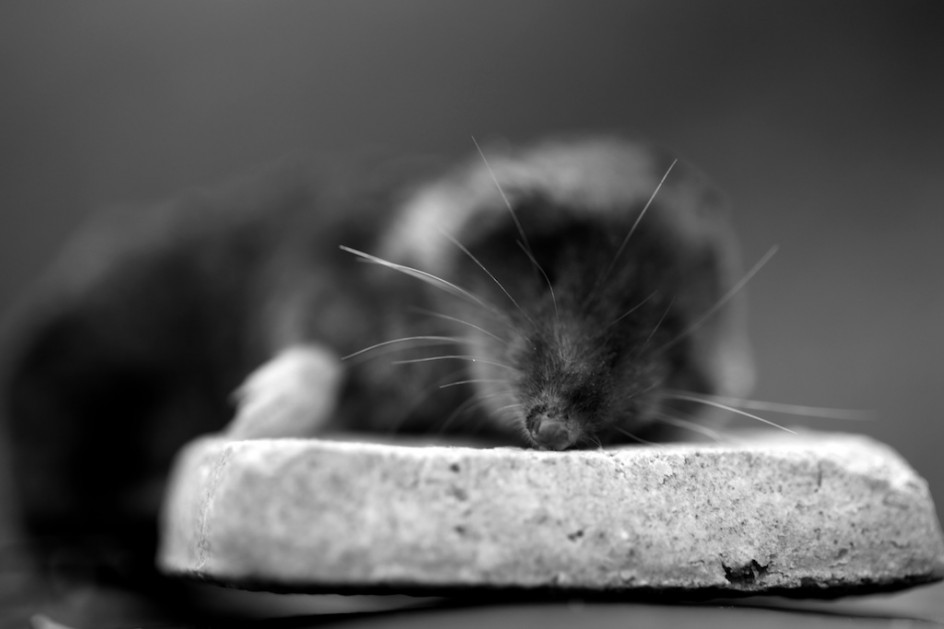
I want to tell you the sad but true story of the bravest mouse I have ever known, a smart mouse who sacrificed himself for what may have been the biggest score of his life. We are reminded constantly of the real world of real animals.
I was in the kitchen making breakfast when I heard a clunking and rattling coming from the big room at the end of the house. Maria was upstairs and the dogs were outside and I just could not imagine what the noise would be. I came into the room and looked behind a big chair and there I saw this small mouse dragging a discarded large dog biscuit – it was covered with dust and grime – into a very small hole in the wall. The hole was barely big enough for him, but not nearly big enough for this biscuit. He was trying hard to pull it in.
I wasn’t sure what to do. I almost pounded him with a walking stick, but couldn’t, mostly because he was so brave and determined. I couldn’t help thinking that this mouse had hit the jackpot, and was going for it.
I reached down and saw him hanging on to the biscuit for dear life, and trying to pull it into the hole. He could easily have vanished into it, but he wouldn’t go. Perhaps he didn’t see me reach down – he must have – but I was able to grab him by the tail, and to my surprise, he still wouldn’t let go of the biscuit. This mouse had to live, I thought. He deserves his biscuit. But not in the farmhouse. I picked him up with one hand, the biscuit with the other. I took both up in the tall grass and bush by the side of the house and dropped him there. He could make a nest out there and keep his hard-won treat. I’m sure he could find his way back into the farmhouse or one of the barns. He was a brave and determined mouse.
An hour later, I came outside and Lenore rushed to a spot right by the garden. She looked up at me, and sniffed. Whatever was there, Lenore wasn’t eating it, which drew my attention. I came up and saw the mouse, dead right near his biscuit. Surely, he was trying to get back into the house. On the top of the nearby stone wall, I saw Mother, sitting there, swishing her tail, watching us. I don’t mourn mice much, but I did feel bad about this one. I put him on the biscuit, took a photo, said good bye and buried him up the hill a ways, deep enough to keep the cats off of him. I buried the biscuit with him, so he got to keep it after all. So there is that. That is the sad but true story of a brave and determined mouse. The bravest mouse I have known.
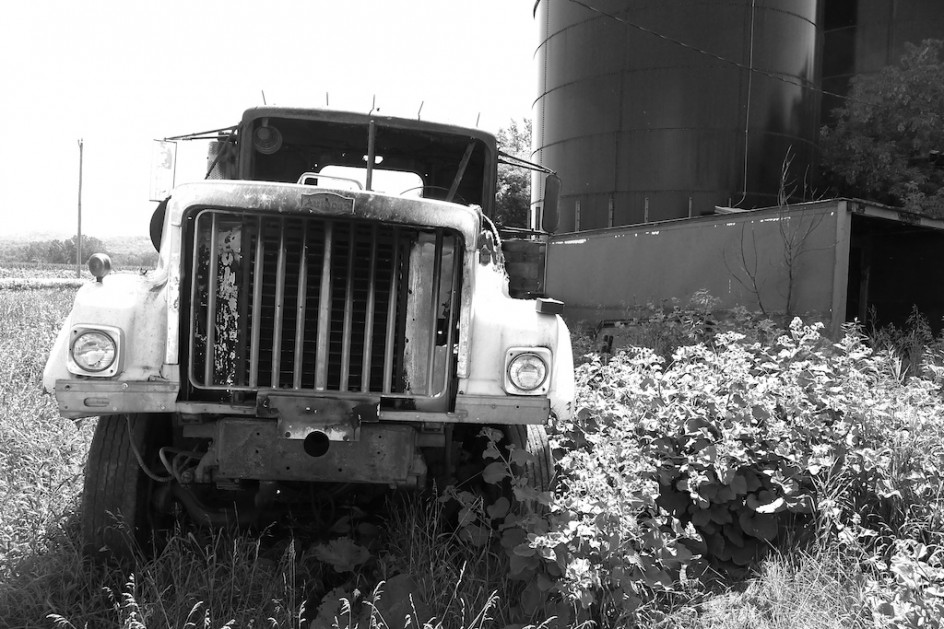
I was a bit surprised when my daughter Emma recommended that I read “The Hunger Games” by Suzanne Collins, as it is not really the kind of novel either of us generally read. The Dystopian thing is huge, growing and creative, but I have not been drawn to it. It seems too much like it’s mother, the news.
“Hunger Games” is the first of a wildly successful best-selling trilogy, a novel aimed at young adults but which has spread to a much wider audience. I couldn’t put the book down. It had the cleverest and most elemental of plots – two teenagers, boy and girl – are forced into a game of ritual sacrific by their evil and remote government which forces its captive districts to send their children up for ritual killing to show their submission. Their, on their own, they need to find themselves quickly amidst a brutal contest – produced as a live television show by their government, “The Capitol.”The heroine, Katniss, is very appealing – brave, vulnerable, smart. The book captures takes the idea of reality TV – pervasive in our culture – and elevates it to real horror.
I thought the writing pedantic, even clunky and despite all of the twists and turns, I never doubted the outcome for a second. You could see it coming a mile away, perhaps a reason the book feels so good. It is not a great book by any means, but a great read. You will not remember it in six months. But I will finish the trilogy. “Hunger Games” got me thinking to the Armageddon view that underlies so much of Dystopian literature. I don’t think I’ve ever read a novel that took a bright view of the future. I suppose heaven is the theological literary answer to Dystopianism (this view is big in movies also, think of Liam Neeson in “Gray.”) Younger people are flocking to dystopian literature in droves, and so are some great writers.
“Hunger Games,” like most books in the genre, leaves kids out on their own. Few adults to turn to, rarely any parents. Government is always evil, remote and relentless. Like anyone on the Hero’s Journey, they need to find themselves. An old story. The landscape is a wasteland of environmental ruin and social cruelty and catastrophe – hunger, rape, wanton brutality, rampaging and murderous animals. Why, I wonder, do we never imagine a better future? Why does a better future never capture our imagination as vividly? Why do we expect so little of our future selves? It seems to be human nature. And there’s a lot of money in it too.
I am fascinated by it. My life took a Dystopian turn a few years ago, when it almost completely fell apart. I was living in ruin, emotional and literal. I had entered this barren landscape, and was fighting for my life. At the time, I was devouring Joseph Campbell like a starving man finding food. As Thomas Merton had a decade earlier, he gave me fuel to keep going. Campbell wrote that all such visions – utopian, dystopian, political, left, right – are not reflections of the exterior world, but of our own interior world. Mirrors of our inner selves. Our spiritual choices.
For young people entering adolescence, the world is literally coming apart. Their bodies are changing, their parents no longer make sense or have all of the answers, they are alone and seeking their place in the world. Frightening stuff, I remember, even though I was to experience it again. Armageddon, wrote Campbell is an old story, each of us looking in the mirror, and it has little to do with what will happen to the world, one way or another.
“We keep hearing about the revolution around us all of the time,” wrote Campbell, “the revolution, the revolution, the revolution. Revolution doesn’t have to do with smashing something; it has to do with bringing something forth. If you spend all your time thinking about that which you are attacking, then you are negatively bound to it. You have to find the zeal in yourself and bring that out. That’s what’s given to you…The only place to look for blame is within: you didn’t have the guts to bring up your full moon and live the life that was your potential.”
I’m grateful for Emma’s recommendation. I do not see things like Dystopianism as good or bad. It is not an argument. Like our love of animals, I find it fascinating, revealing. We each find our own way, and seek what we need, and our paths often cross.